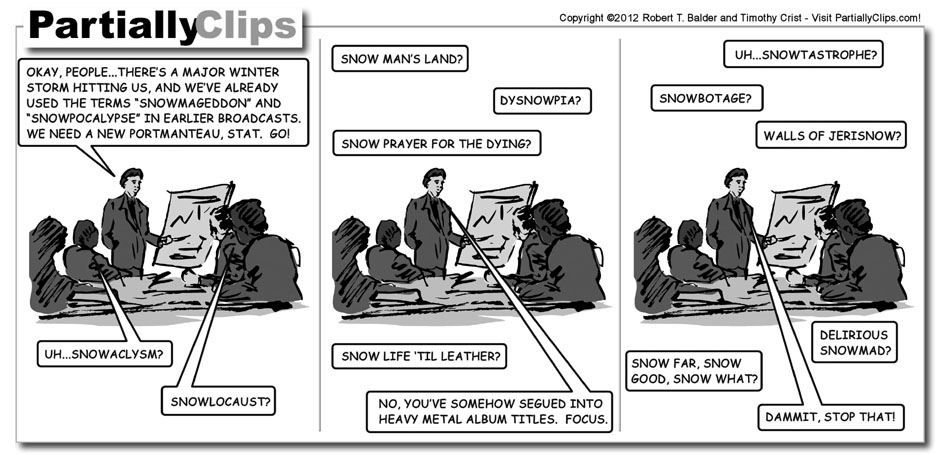Or should that be apostrolypse? Anyhow, it's imminent, according to Lindsay Johns, "Waterstones: O apostrophe, where art thou?...", Daily Mail 1/13/2012:
So another one bites the dust. Yesterday the high street bookshop chain Waterstone’s announced that, as part of its re-branding, it has decided to move with the times and officially change its name to Waterstones, sans apostrophe. O tempora, o mores! […]
But it’s only an apostrophe, I hear you say. True, but here’s why we should care. You see, it starts with an apostrophe. Next, people will think that it is perfectly acceptable to omit a full stop at the end of a sentence. Then the comma and the semi colon will be unceremoniously dispatched to the grammatical dustbin.
And with them, meaning will be lost and our ability for articulation of the finer points of thought. Our language will be diminished, not augmented. In short, today the apostrophe, tomorrow the English language as we know it.
Make no mistake. These are dark times for the English language. The barbarians are at the gates. Right now, marauding grammatical Goths are encircling our linguistic Rome. We must act now to prevent disaster. We must valiantly defend the apostrophe against those who seek to attack her. We must don our grammatical armour and man the linguistic barricades, as an onslaught of grammatical philistinism will soon [be] upon us.
Read the rest of this entry »


